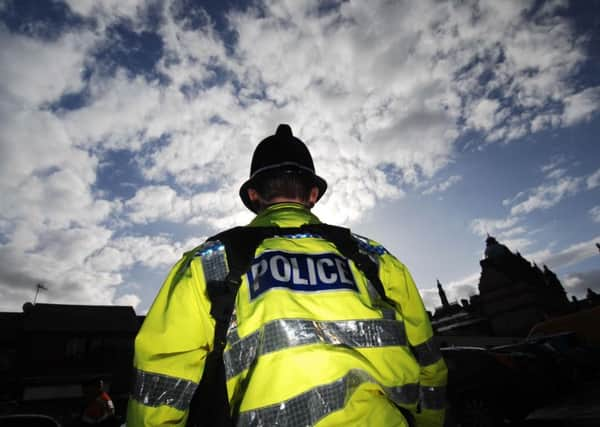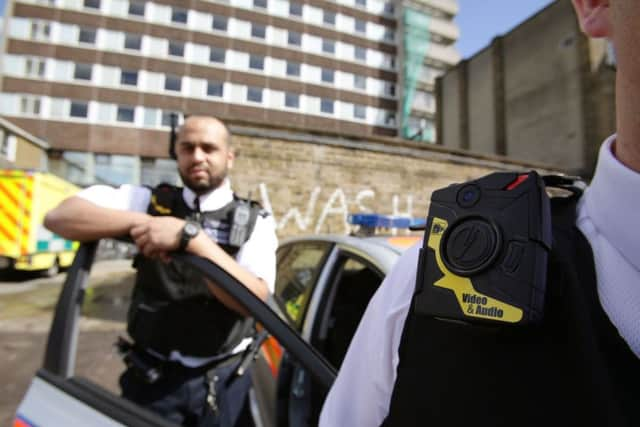Two thousand body cameras handed out to West Yorkshire police officers in multi-million pound scheme


West Yorkshire Police will give the new technology to all its front-line officers, starting with those in Bradford, in the coming months. The cameras will be worn by officers out on patrol and used to record incidents such as domestic assaults, anti-social behaviour and public disorder.
It is following in the footsteps of the Metropolitan Police, which is equipping most of its officers with body-worn video cameras after a trial found they cut allegations against the force by 33 per cent.
Advertisement
Hide AdAdvertisement
Hide AdThe scheme is being trialled in Bradford to assess potential problems and make sure the scheme is done properly in other parts of the county.


The force says the cameras will be supplied by Reveal Media, who are already providing the technology to the Met as well as to police in Greater Manchester, the West Midlands, Sweden and Hong Kong.
The cameras, which can be attached to the torso or the helmet, are designed to capture evidence at scenes of crime and help support prosecution cases. Research from the US shows the devices also stop disputes between police and the public from escalating.
West Yorkshire Police joined other forces around the world last year in a research project with Cambridge University, with 160 video cameras used by its front-line response officers. Academics had been due to announce their findings this summer but this has now been delayed.
Advertisement
Hide AdAdvertisement
Hide AdDuring an earlier experiment by the same researchers in Rialto, California, where the cameras were given to officers, the use of force by police fell by 59 per cent and the number of reports against officers fell by 87 per cent.
But earlier this year, the Independent Police Complaints Commission said the positioning of the cameras on firearms officers’ chests during a fatal shooting in London obscured and impacted the quality of the footage, making them ‘unfit for purpose’.
A report by West Yorkshire Police into the plans, seen by The Yorkshire Post, said: “Across the UK body worn video has been proven to assist officers with obtaining quality evidence leading to an increase in early guilty pleas, increased customer satisfaction, confidence and a reduction in the time spent to investigate unfounded complaints against officers.”
It added: “In the modern world staff are becoming more aware of technology and the availability of devices capable of filming and taking pictures. Some staff within the organisation have already used some form of body worn camera and have experienced the benefits.
Advertisement
Hide AdAdvertisement
Hide Ad“It is important that officers understand that the device is ‘their’ independent witness, available to strengthen their investigations and protect them against unfounded complaints.
“Other forces report that the public are supportive of the use of body worn video and such use is seen as two fold – evidential and greater transparency.”
West Yorkshire Police last year announced that its officers would be told to contact their control room whenever they carry out a ‘stop and search’, after concerns were raised by young people and members of minority communities about the way the searches were conducted.
Information about the search provided by the officer will be put directly onto a computer system, meaning information about the incident is available to be scrutinised later.
Bosses admit public confidence in the force has fallen since 2012 but said last year that they hoped the plans would help by providing incontrovertible evidence about potentially sensitive incidents.